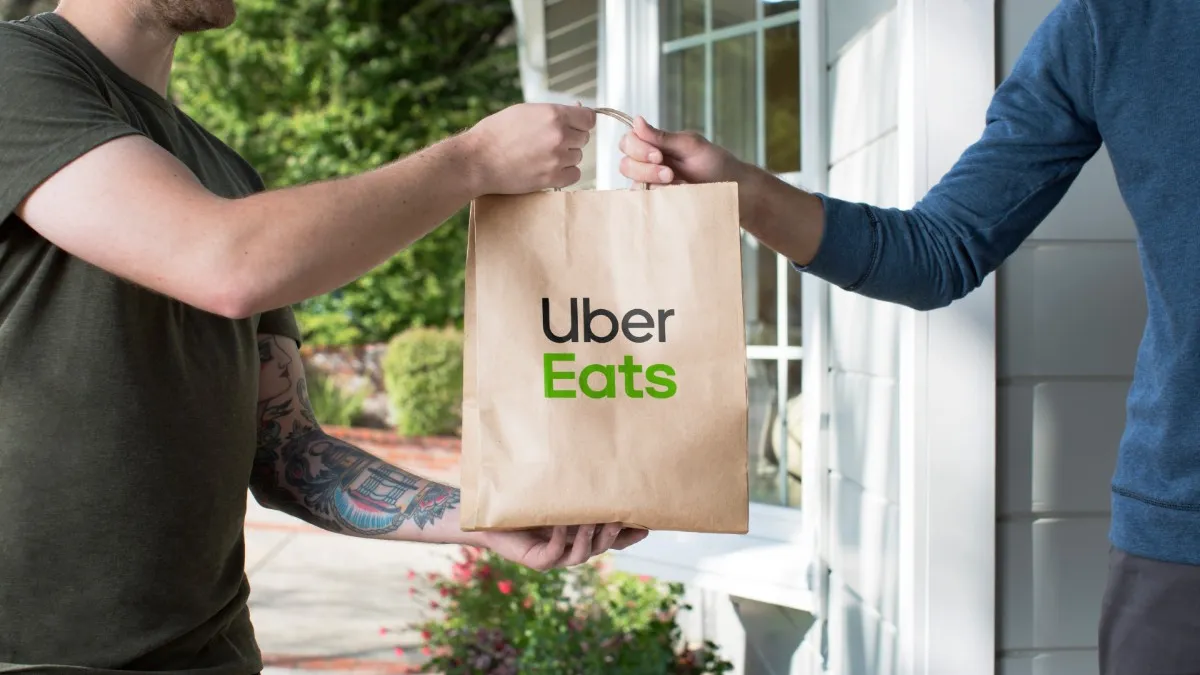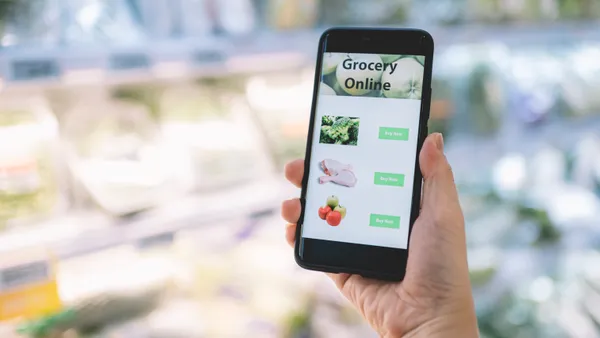Dive Brief:
- Restaurant delivery companies are turning to the grocery industry to keep operations afloat as demand for takeout drops and restaurant partners struggle due to COVID-19, according to reports.
- In France, Uber Eats has partnered with supermarket chain Carrefour to deliver essential grocery items in as little as 30 minutes, and in Spain it will work with Galp convenience stores, according to the Verge.
- DoorDash has added 7-Eleven, Wawa and other convenience store chains to its app, Bloomberg reported, bringing the total number of convenience stores on the platform to 1,800.
Dive Insight:
While restaurant delivery platforms have previously expressed interest in the grocery space, the coronavirus outbreak is fast-tracking plans.
In the U.S., DoorDash began testing delivery of paper and packaged goods earlier this year. It has been ramping up its grocery delivery plans since 2019, partnering with e-commerce platforms like Mercato and Rosie that work with smaller, independent retailers. It also powers Wegmans’ prepared food delivery operation. However, DoorDash hasn’t been able to secure a major supermarket partner, which could be critical to its success in grocery delivery.
Uber has been plotting its entry into grocery for a while but has focused internationally. Uber Eats has tested grocery delivery in Australia and the U.K., and last October Uber acquired Cornershop, an online grocery startup in South America. Uber was also reportedly in talks last summer about launching a dedicated grocery delivery service in the U.K.
Food delivery platform Waitr also announced it will begin same-day grocery delivery from Ralph’s Market in some Louisiana cities, according to a company press release. Grubhub hasn’t shared any specifics around grocery delivery, but a few independent grocery stores like East Side Grocery Delivery in New York City and Kent’s Meat & Groceries in Redding, California, show up on its app.
While these current partnerships may not remain for the long term, they will help restaurant delivery companies refine their grocery capabilities, paving the way for them to gain additional ground in grocery in the future. With customer demands and employee strikes straining Instacart and Shipt, DoorDash, Uber Eats and others could be well-positioned to win some market share.













